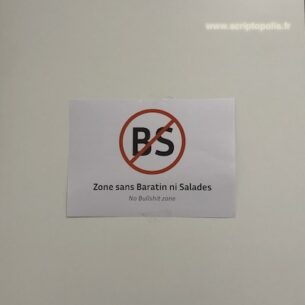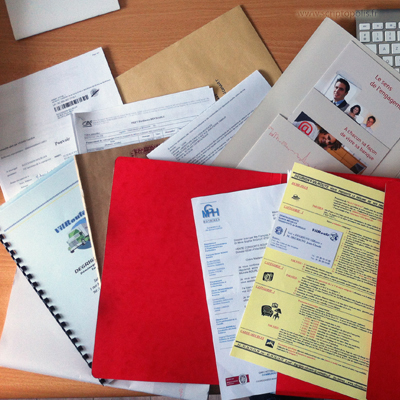Stacking
Paris, march 2014.
When one is moving out of an apartment into another accommodation, a huge amount of documents has to be accumulated and assembled in different files. Purchase contracts, loans offers, notarized acts, insurance contracts, the minutes of the general meeting, movers’s contracts, a detailed estimate of works, the list seems to be endless… and one rapidly feels totally overwhelmed by such a flow of written traces. This experience gives credit to the usual feeling that paperwork is meaningless and boring. Filling forms, compiling different sorts of documents, carefully reading contract clauses and so on, all these activities are mostly experienced as a waste of time. However, one has only to pay a bit more attention to such paperwork and the minute practices of paper-shufflers to become extremely surprised of what is at stake.
During the mere situation of offering a loan, one switches in a few minutes from one identity to another. When entering the bank, she is seen as a future customer. When the employee asks for medical questions related to the insurance contract, she is briefly performed as a patient, and then as a potential insured person. When the question of her occupation arises, she is exclusively perceived on her professional side. When her identity card is asked to compare the copy in the file to the original presented in her hand, her status as an authentic person is concretely at stake. And when it is time to take a pencil and sign the contract, it calls for the juridical side of her capacity to act by writing. In less than one hour, as documents of the pile are read and discussed one by one, she is sequentially enacted in different states, the staking of which being conceived as the guarantee of the most possible complete commitment of her person.







